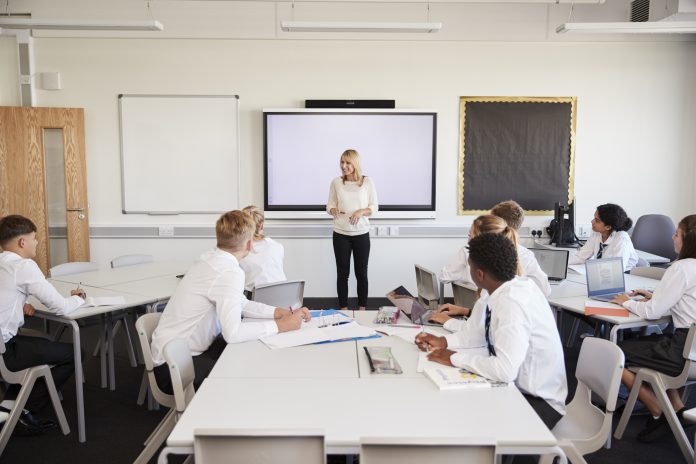As children in the UK return to school three months behind in their studies, a survey has suggested disadvantaged pupils and boys have been worst hit
The study by the National Foundation for Educational Research (NFER), which interviewed around 3,000 teachers and heads in over 2,200 schools, suggested teachers had covered just 66% of their usual curriculum for the academic year.
While the average time of lost learning was three months for all pupils, some have suffered more than others. 21% of teachers said that boys are further behind than girls and the learning gap for disadvantaged pupils has widened by 46%.
The NFER study also found that 53% of pupils from deprived schools were at least four months behind, compared to 15% in the wealthiest schools.
The economic cost of lost learning
NFER have estimated that the worst-hit secondary schools in England could face average costs of over £700,000 to cover additional staff, cleaning, IT spending and preparing for another lockdown. Primary schools face an average cost of £280,000 for similar measures.
The study found that there will need to be intensive catch-up support to make up lost ground. However, almost three quarters of teachers questions revealed they felt unable to teach to their full potential under the social distancing regulations.
NFER’s chief social scientist, Angela Donkin, said: “There remains a range of barriers for teachers and schools, which means catch-up should be seen as part of the ongoing process of learning recovery, for most pupils, rather than as a quick-turnaround solution.
“It is clear that additional support needs to be targeted at disadvantaged pupils and schools from areas of high deprivation – something that is encouragingly happening through schemes such as the national tutoring programme – although there are questions about whether the scale will be sufficient to meet the high demand for those requiring intensive support.”
Government response
Many teachers have criticised the government for their last minute guidance on what to do during COVID-19 outbreaks and local lockdowns, which was published on Friday.
The NFER study revealed teachers want better planning for further lockdowns and called for support to provide disadvantaged pupils with IT equipment. Over 28% of children were reported to have no access to a computer or laptop at home.
Government has offered a laptop and hotspot for disadvantaged pupils but teachers said a swifter dispatch of devices was needed, as well as more training for teachers.
The government has also set up a £1 billion COVID catch-up scheme to fund tutoring and small-group catch-up provision. However NFER worry this might not be enough, and schools and pupils in disadvantaged areas may need longer-term funding to provide effective support.
A Department for Education spokesperson said: “While the attainment gap had narrowed since 2011, many pupils have had their education disrupted by coronavirus, and we cannot let these children lose out.
“That’s why throughout the pandemic we have invested in remote education, providing devices, routes and resources for the children who need them most, and why our £1bn COVID catch-up package will tackle the impact of lost teaching time – including targeted funding for the most disadvantaged students.”
However, the shadow education secretary, Kate Green, explained: “When schools are closed, we see deep inequalities become more entrenched, and those from the most disadvantaged backgrounds lose out most.
“Young people’s futures cannot be held back by Conservative incompetence. This is a wake-up call for ministers. They must ensure that schools stay open, that parents and teachers are supported, and that pupils get all the help they need to catch up.”











